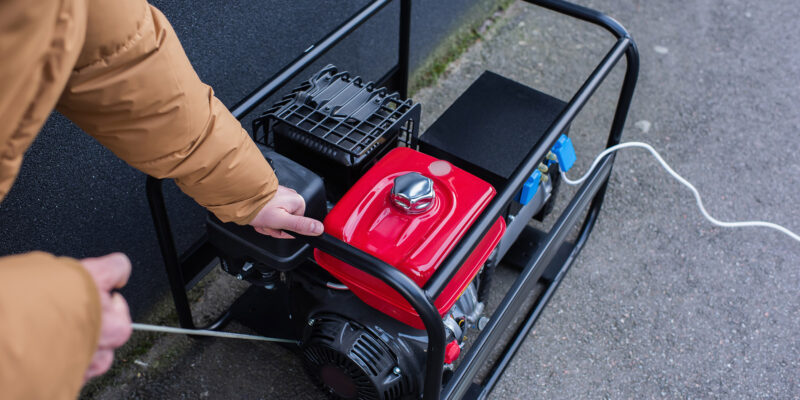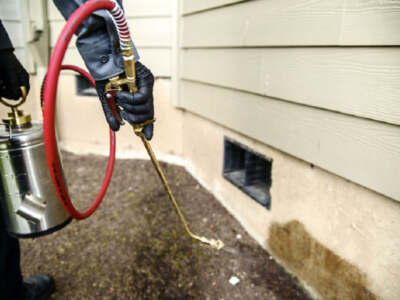Generators are crucial for a home’s power supply if you live in an area where difficult weather is typical. This is especially true for areas on the east coast, where there’s a heightened risk of flooding during storms.
In addition to possible flooding from rain, the chance of storm surges can cause significant damage to generators.
Everyone knows that the primary purpose of generators is to power up critical devices when an energy source is unavailable. You can use them during blackouts to keep your home running, keeping you safe and comfortable while sustaining your life.
With hurricanes and tropical storms whipping the East Coast in recent years, homeowners must know how to maintain their generators adequately.
You can check out Premier Generators if you are looking for a generator company in Barnstable County. But, if you already have a generator at home, read below for more information on how to maintain and extend your generator’s life.
The Benefits Of Regular Generator Maintenance
Like any other equipment, generators need routine maintenance to keep them in shape and extend their life.
There are several components you must consider and familiarize yourself with when doing generator maintenance.
The major components of a generator are the following:
- engine
- generator
- alternator
- regulator
You must properly maintain these for long-term performance, safety, efficiency, and maximum convenience.
Preparing For East Coast Weather Conditions
Now that you already know the components of a generator, you should plan for its seasonal maintenance.
For example, summer is prime time for generators because people use their air conditioners the most, and they often run them at total capacity. Thus, ensure your generator has plenty of fuel by monitoring fuel levels throughout the summer.
If your generator starts running low on fuel, fill it up immediately so it doesn’t shut down unexpectedly during a heat wave.
Also, ensure that any filters are clean and debris-free so they don’t block up the engine or decrease its efficiency during maximum usage.
During winter, the frigid weather can cause some generators to freeze up, so it’s crucial to winterize them before you put them into storage.
To winterize your generators, you must utilize all the fuel from the tank and run a quart or two of oil through the machine to keep it lubricated. Always drain any remaining fuel or oil with a siphon hose before storing your generator in the garage or shed for the winter.
Aside from seasonal maintenance, you also have to weatherproof your generator. You can protect your generator by installing an enclosure to protect it from various weather conditions, such as:
- rain
- snow
- and others
You can use heavy plastic like polycarbonate or thermoplastic sheets as an option. You can also use a canvas cover to protect your generator from the elements.
It would be best to guarantee plenty of air circulation around your generator so it doesn’t overheat. This is especially important if you run it frequently or for long periods, such as during a blackout when everyone needs power.
You can accomplish this by installing vents at the top of your enclosure or cover or by drilling holes in the sides so that air can flow freely without allowing water into your generator.
Routine generator maintenance is the key to keeping your system running smoothly and efficiently.
Always prioritize engine and alternator checks to keep an eye on the health of your engine and alternator.
Check the oil levels in both and the water levels in the cooling system.
Check belts for wear and tear and replace them if necessary — especially if they’re over two years old.
Also, check that all connections are tight and secure before starting the engine for the first time after sitting idle for a while.
Check fuel filters regularly to ensure they are clean; replace them if necessary. Also, check fuel lines for leaks or cracks; replace them if necessary.
Test batteries by disconnecting them from their terminals, then reconnecting them after 10 minutes; if they still have power after this test, they should be fine until next year’s springtime tune-up visit from your local service center.
Inspect cooling and lubrication systems because they keep your generator from overheating while using it heavily or for long periods. It’s vital to ensure that all hoses are correctly connected and not cracked or leaking to do their job effectively.
Cleaning Your Generator
Here are the steps for cleaning your generator.
First, you must eliminate any debris that may have accumulated around it. This debris will include the following, especially if your generator is outside:
- leaves
- grass clippings
- dirt
These can impede airflow and prevent the generator from working correctly. So if you notice too much debris around the unit, consider installing a cover or fence so it won’t be disturbed by animals or children.
The second is changing its air filter regularly. Depending on your area’s use and environmental factors like dust and pollen count, you should replace the air filter every year or two.
You can buy replacement filters at most hardware stores or online. Just ensure you get one with the proper dimensions for your model generator.
Annual Maintenance
Frequent gas replacement is one of the most significant things you can do to keep your generator operating smoothly, and the best way to attain this is to use a stabilizer in your gas tank.
These chemicals prevent condensation from forming in your fuel tank and from avoiding corrosion from forming on metal surfaces that come in contact with fuel.
You should also regularly replace the gasoline in your generator’s tank with fresh fuel. This will guarantee that your generator runs efficiently and safely. It will also ensure that any water or debris in your tank doesn’t cause damage to the engine or other parts of your generator over time.
Checking for leaks and corrosion on your generator should be essential to any routine maintenance checkup.
You should also check the oil levels and replace them if necessary when they get low because low oil levels can cause damage to internal parts of your generator over time as well as lead to dangerous situations when you need it most during an emergency or power outage event.
Final Thoughts
Suppose you live along the coastal areas on the East Coast like
- Maine
- New Hampshire
- Massachusetts
- Rhode Island
- Connecticut
- New York
- New Jersey
- Delaware
- Maryland
- Virginia
- North Carolina
- South Carolina
- Georgia
- Florida
You will often deal with hurricanes or tornadoes. Thus, having a reliable energy source is essential to keeping your family safe and comfortable during these times.
A well-kept generator is essential if you live in this type of area that experiences such weather.
Generator maintenance for East Coast homeowners can be significant. Not only does it help keep your generator running efficiently and prevent costly repairs, but it also protects your investment and ensures you’re prepared for any emergency.










Comments